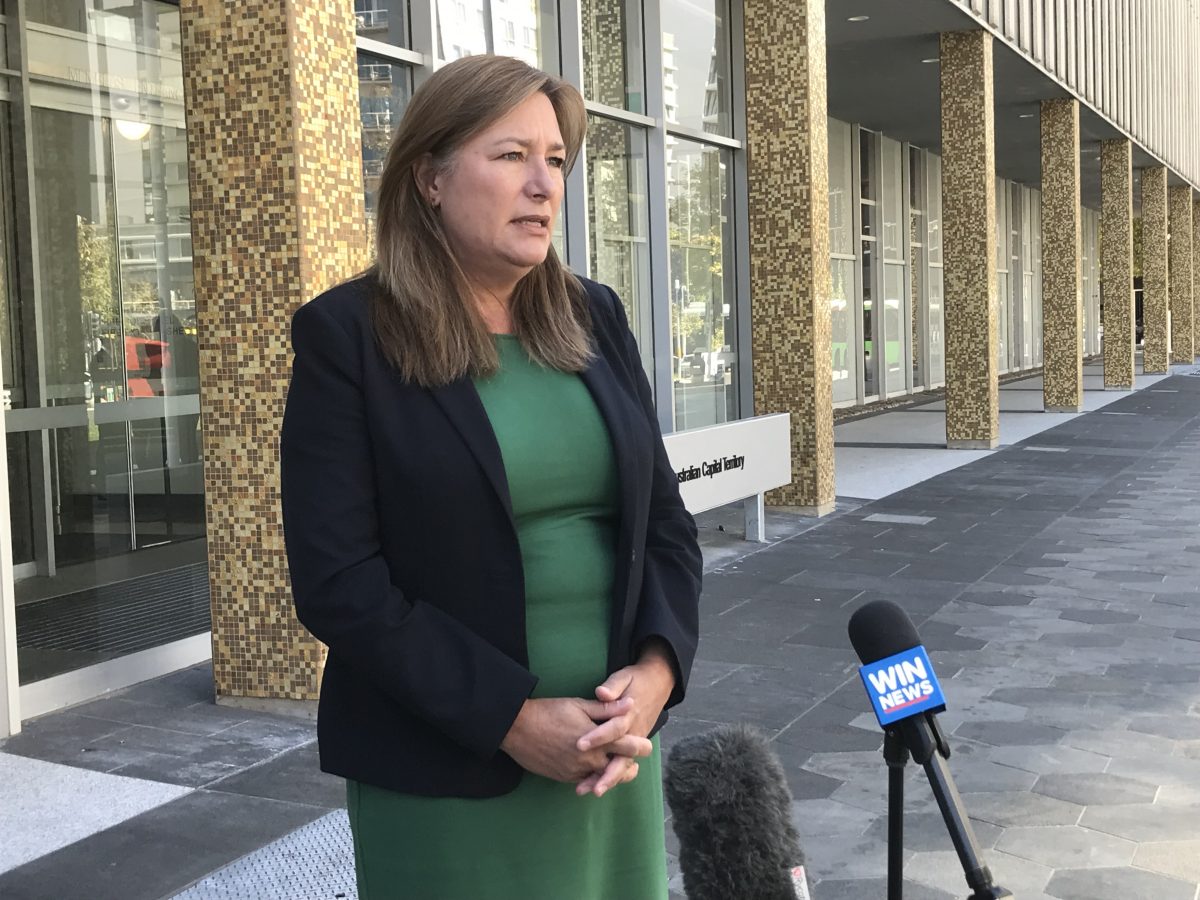
Housing and Suburban Development Minister Yvette Berry is again under pressure. Photo: Lottie Twyford.
Forced relocations of ACT public housing tenants should be abandoned in favour of an opt-in scheme, according to the community sector and a former chief minister.
Thirteen organisations and former Labor Chief Minister Jon Stanhope are alarmed by the impact of the ACT Government’s Growth and Renewal Program on vulnerable Canberrans living in ACT public housing.
In an open letter to Housing and Suburban Development Minister Yvette Berry and Homlessness and Housing Services Minister Rebecca Vassarotti, they say the removal program mostly impacts older women. The letter states 83 per cent of tenants are older than 50 and 87 per cent of women are living alone or with children.
More than half (61 per cent) have physical or psychological disabilities, chronic health conditions, or are caring for dependents within the household; 17 per cent are single mothers with dependent children; and 14 per cent identify as Aboriginal or Torres Strait Islander people.
“While we all acknowledge the acute need for more public housing, we are of the strong view that forcibly relocating vulnerable tenants threatens to cause significant harm to these individuals and is not an acceptable way to raise revenue,” the letter states.
“It is also important to ensure public housing continues to be spread across Canberra.”
The letter states the government should not target a cross-section of elderly tenants, women, people with disabilities and those with mental illness. Instead, it should focus on tenants willing and able to relocate if offered a suitable, alternative property to live in.
The government says the removal program is necessary so older properties can be sold to fund new housing or the sites redeveloped to provide modern and appropriate homes for Housing ACT tenants.
In February, Housing ACT started advising the estimated 300 selected tenants that they would have to move. Many have been in the same home for decades.
But the blowback forced the government to review the program’s exemptions process while insisting it was still on track.
The Opposition said Housing ACT had botched the entire procedure.
The ACT Council of Social Services called on the government to move to an opt-in process. The ACT community sector has now joined the call.
The open letter states the prospect of being forced to leave has led to distress, anxiety and confusion among tenants.
“They have not been given timeframes, processes through which to apply for exemptions or appeal decisions, or any certainty about where Housing ACT proposes to rehouse them,” the letter states.
“This lack of information has caused an enormous amount of distress and feelings of being disrespected and powerless.”
It states that given the age, needs, abilities and vulnerabilities of the tenants, forcing them out of their homes risks significant hardship and harm.
“We urge the ACT Government to redesign the Growth and Renewal program as a voluntary opt-in relocation program which incorporates the key elements of tenant consultation and engagement with clear processes and timeframes, and abandon elements that rely on forced relocation,” the letter states.
It is signed by Genevieve Bolton, Executive Director / Principal Solicitor, Canberra Community Law; Dr Emma Campbell, Chief Executive Officer, ACTCOSS; Carmel Franklin, Director, Care Financial Counselling Service Inc; Elena Rosenman, CEO, Women’s Legal Centre ACT; Agata Pukiewicz, Principal Solicitor, Care Consumer Law; Joel Dignam, Executive Director, Better Renting; Bec Cody, Chief Executive Officer, Mental Health Community Coalition ACT; Nicolas Lawler, Chief Executive Officer, Advocacy for Inclusion – Incorporating People with Disabilities ACT; Jenny Mobbs, Chief Executive Officer, Council on the Ageing ACT; Dalane Drexler, Chief Executive Officer, ACT Mental Health Consumer Network Inc.; Cheryl O’Donnell, CEO Canberra PCYC Inc.; Kerry Weste, President, Australian Lawyers for Human Rights; Julie Tongs, CEO, Winnunga Nimmityjah (Strong Health) Aboriginal Health and Community Services; and Jon Stanhope, former ACT Chief Minister.
The renewal program aims to add 400 new homes to the Housing ACT portfolio and deliver 1400 modern homes.



















